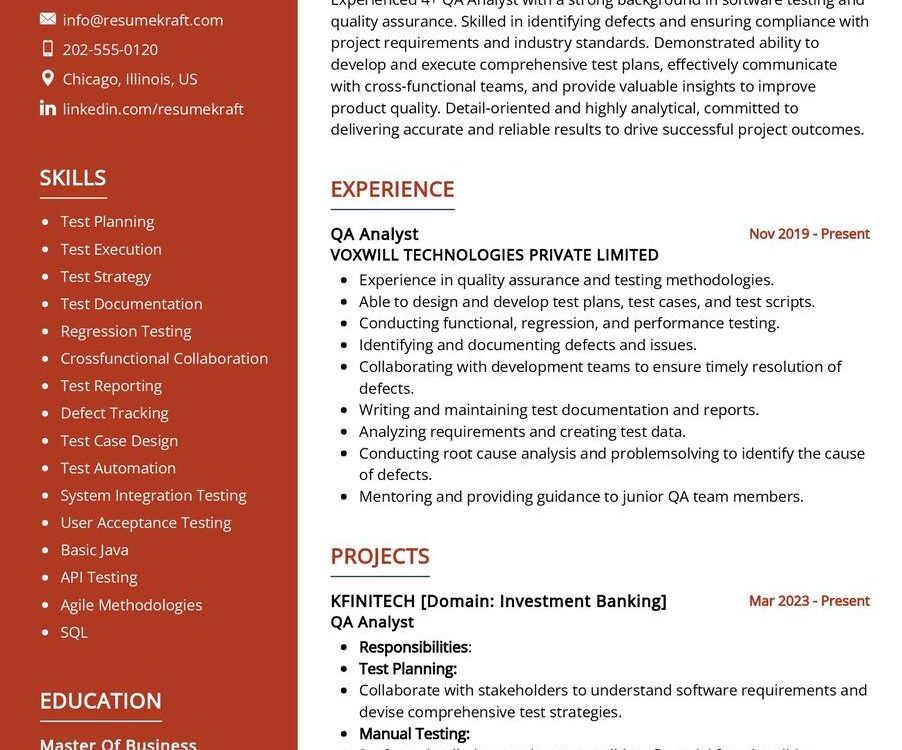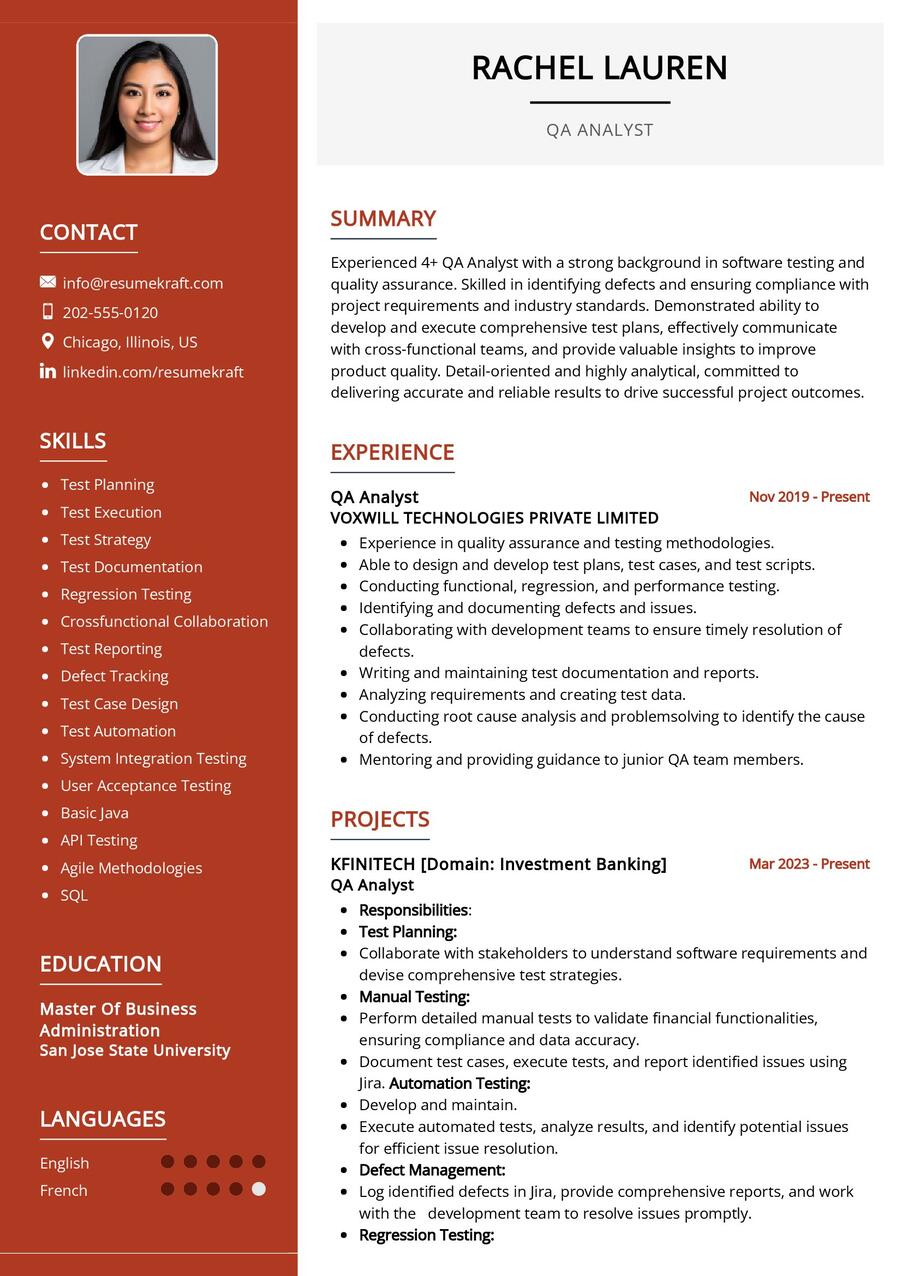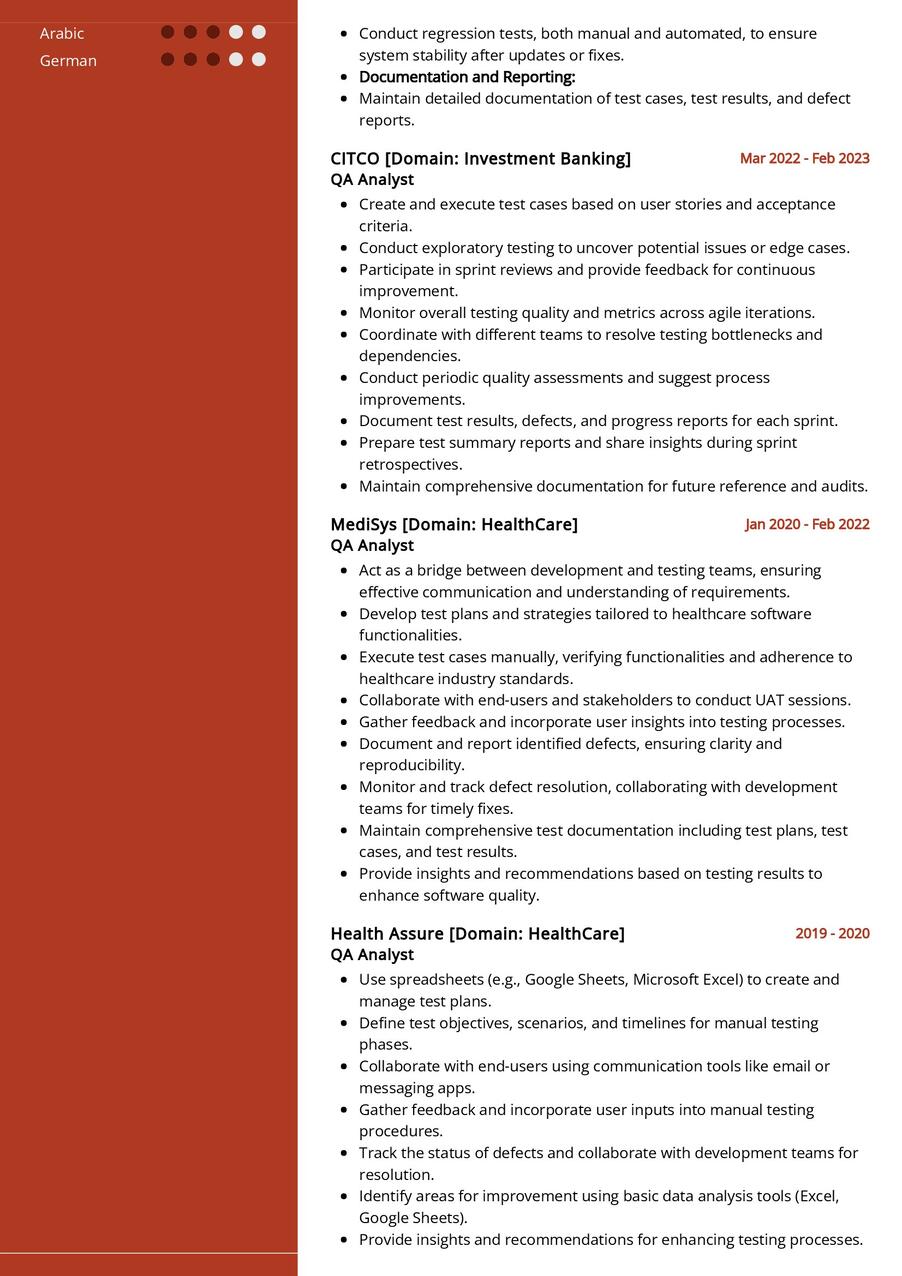Exploring the Role of a QA Analyst
Quality Assurance (QA) Analysts play a crucial role in ensuring the seamless functioning of software applications. In today’s fast-paced technological landscape, the demand for skilled QA Analysts is at an all-time high. Let’s dive into the multifaceted responsibilities, required skills, and key insights into becoming a successful QA Analyst.
Understanding the QA Analyst Job Requirements
Becoming a QA Analyst involves meeting specific requirements to thrive in this dynamic field. Let’s take a closer look at the prerequisites to embark on a successful journey as a QA Analyst:
- A Bachelor’s or Master’s degree in Computer Science, Information Technology, or a related field, providing a strong foundation in the technical domain.
- Comprehensive knowledge of software testing methodologies and tools, showcasing your expertise in ensuring software quality.
- Hands-on experience in designing and implementing test plans, scenarios, scripts, and procedures.
- Strong analytical and problem-solving skills, essential for identifying and resolving software defects.
- Attention to detail and the ability to work methodically, ensuring comprehensive testing coverage.
- Excellent communication skills to collaborate with cross-functional teams and convey testing results effectively.
- Understanding of agile development methodologies, as QA Analysts often work in agile environments.
Acquiring certifications in software testing, such as ISTQB, can enhance your profile and demonstrate your commitment to professional development.
Key Responsibilities of a QA Analyst
The role of a QA Analyst involves a diverse set of responsibilities, each contributing to the overall quality of the software. Let’s unravel the core duties that define this role:
- Creating and executing test plans, ensuring comprehensive coverage of software functionality.
- Identifying, documenting, and tracking software defects, collaborating with development teams for resolution.
- Performing regression testing to validate that new code changes do not adversely impact existing functionality.
- Developing automated test scripts to streamline repetitive testing processes and improve efficiency.
- Collaborating with developers and other stakeholders to understand project requirements and user scenarios.
- Conducting performance testing to assess the scalability and reliability of software applications.
- Providing clear and concise reports on testing progress, results, and issues to project stakeholders.
Each responsibility is a critical component in the QA Analyst’s toolkit, contributing to the delivery of high-quality software.
Crafting an Effective QA Analyst CV
Your CV is your ticket to securing a rewarding position as a QA Analyst. Here are some tips to create a standout CV that highlights your skills and experiences:
- Emphasize your experience in different testing methodologies, such as manual testing, automated testing, and performance testing.
- Showcase your ability to collaborate with diverse teams, emphasizing instances where your testing efforts led to improved software quality.
- Include metrics to quantify your achievements, such as the percentage of defects identified and resolved during testing cycles.
- List relevant certifications, demonstrating your commitment to staying updated with industry best practices.
- Customize your CV for each application, aligning your skills and experiences with the specific requirements of the job.
Your CV is more than a document; it’s a reflection of your expertise and dedication to ensuring software quality.
QA Analyst CV Summary Examples
Your CV summary is the first impression you make on potential employers. Craft a compelling summary that encapsulates your QA Analyst journey:
- “Results-driven QA Analyst with over 5 years of experience, adept at designing and executing comprehensive test plans, improving software quality and ensuring a positive user experience.”
- “Detail-oriented QA Analyst with expertise in both manual and automated testing, proven track record of collaborating with development teams to deliver high-quality software solutions.”
- “Experienced QA Analyst with a focus on continuous improvement, leveraging agile methodologies to enhance testing processes and contribute to successful software releases.”
Each summary is a glimpse into your QA Analyst journey, highlighting your strengths and commitment to excellence.
Building a Robust Experience Section in Your QA Analyst CV
Your experience section is the core of your CV, narrating the story of your QA Analyst journey. Here are some examples to guide you:
- “Led the testing efforts for a critical software release, identifying and resolving 90% of defects before the product launch.”
- “Implemented automated testing scripts, resulting in a 30% reduction in testing time and improved overall testing accuracy.”
- “Collaborated with development teams to integrate testing into the agile development process, leading to faster identification and resolution of software defects.”
Each experience is a chapter in your QA Analyst story, showcasing your impact on software quality and project success.
Educational Achievements for Your QA Analyst CV
Your educational background is a testament to your knowledge and commitment to the field. Here’s how you can showcase your educational milestones:
- Master of Science in Computer Science, XYZ University, 2016.
- Bachelor of Technology in Information Technology, ABC University, 2014.
- ISTQB Certified Tester – Foundation Level, 2017.
Each educational qualification is a stepping stone, leading you to excellence in the field of software quality assurance.
Essential Skills for Your QA Analyst CV
Your skill set is your toolkit as a QA Analyst, comprising both technical and soft skills. Let’s list down the essential skills that can make your CV stand out:
Technical Skills:
- Proficiency in various testing tools, such as Selenium, Jira, and TestRail.
- Experience in creating and executing automated test scripts using languages like Java or Python.
- In-depth knowledge of software testing methodologies, including regression testing, performance testing, and user acceptance testing.
- Understanding of agile development practices and the ability to work in an agile environment.
Soft Skills:
- Strong analytical and problem-solving abilities to identify and address software defects effectively.
- Excellent communication skills to convey testing results and collaborate with cross-functional teams.
- Attention to detail and a methodical approach to ensure thorough testing coverage.
- Adaptability and a willingness to embrace continuous learning to stay abreast of industry trends.
Each skill is a tool in your arsenal, contributing to your effectiveness as a QA Analyst.
Common Mistakes to Avoid When Writing a QA Analyst CV
While crafting your QA Analyst CV, steer clear of common pitfalls that can hinder your chances of landing your dream job. Let’s explore these mistakes and how to avoid them:
- Avoid using a generic CV for multiple applications. Tailor your CV for each job to highlight your suitability for the specific role.
- Go beyond listing job duties; showcase your achievements and the impact of your testing efforts on software quality.
- Don’t underestimate the importance of a cover letter. Use it as an opportunity to express your enthusiasm for the role and connect with potential employers.
- Balance technical details in your CV. While it’s essential to showcase your technical prowess, ensure it’s easily understandable for non-technical readers.
- Always proofread your CV to avoid any grammatical or formatting errors that could create a negative impression.
Avoiding these mistakes will help you craft a CV that is both authentic and compelling, increasing your chances of standing out to employers.
Key Takeaways for Your QA Analyst CV
As you conclude this comprehensive guide, keep these key points in mind while crafting your QA Analyst CV:
- Highlight your diverse testing experience, showcasing your proficiency in manual and automated testing.
- Emphasize your collaboration skills, detailing instances where you worked closely with development teams to ensure software quality.
- Quantify your achievements, using metrics to demonstrate the impact of your testing efforts on project success.
- Include a section on continuous learning, showcasing relevant certifications and your commitment to staying updated with industry best practices.
Finally, feel free to utilize resources like AI CV Builder, CV Design, CV Samples, CV Examples, CV Skills, CV Help, CV Synonyms, and Job Responsibilities to create a standout application and prepare for the QA Analyst job interview.
Armed with these insights and tips, you are now ready to craft a CV that is a true reflection of your journey, your skills, and your aspirations. Remember, your CV is not just a document; it is a canvas where you paint your career story, a story of growth, learning, and excellence. Best of luck!
Finally, feel free to utilize resources like AI CV Builder, CV Design, CV Samples, CV Examples, CV Skills, CV Help, CV Synonyms, and Job Responsibilities to create a standout application and prepare for the QA Analyst job interview.



